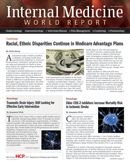Streptococcus Prediction Rules Not Accurate in Pediatric Cases
Pharyngitis prediction rules are not as accurate at identifying group A streptococcus cases as previously thought, according to findings published in the Canadian Medical Association Journal.

Clinical prediction rules were ineffective for streptococcal testing, according to findings published in the Canadian Medical Association Journal.
Researchers from the Paris Descartes University examined clinical prediction rules through a systematic search of various databases for a 40 year period in order to evaluate the diagnostic accuracy of relevant rules based selective testing strategies. The studies were narrowed down to include French children who had pharyngitis during 2010-2011. Those children were diagnosed with group A streptococcus using 2 throat swabs obtained for rapid antigen detection testing and culture. The researchers validated the rules via categorization into the following categories: low risk of group A streptococcal infection, no further testing or antibiotic therapy required; immediate risk of infection, rapid antigen detection for all patients and antibiotic therapy or those with a positive test result; and high risk of infection, empiric antibiotic treatment.
Of 8 studies eligible for review, the 5 most common predictors were tenderness of lymph nodes, fever, age, tonsillar swelling, and exudates. However, predictors ranged in each study from 5 to 14. In 4 of the studies, researchers identified sensitivity as a clinical prediction rule. The remaining 4 rules had never been validated. In 63% of the studies, the reference standard used and inclusion criteria were sufficiently reported.
For 678 patients (46% female, mean age 6.1 years) included in the review, prevalence of group A streptococcus was 41%. Rapid antigen detection test sensitivity and specificity were 93% and 88%, respectively. The use of rapid antigen detection testing after application of the clinical prediction rules ranged from 24 to 86%.
“Our results show that existing clinical prediction rules are not sufficiently accurate to be used in children,” Jérémie F. Cohen, MD, corresponding author of the study explained. “Some rules may be sufficiently sensitive but insufficiently specific, leading to important numbers of unnecessary antibiotic prescriptions. On the other hand, some rules may be sufficiently specific but insufficiently sensitive, leading to an increased risk of missing streptococcal cases that could lead to complications.”
None of the clinical prediction guidelines were able to correctly identify patients at low risk (probability of group A streptococcus ≤ 12%) or high risk (probability ≥ 85%). The highest observed probability of group A streptococcus was 81%, but only included 6% of patients in the overall cohort.
“We believe that in settings where both high sensitivity and specificity are expected, clinicians should use a diagnostic strategy based on rapid testing in all children with pharyngitis, as recommended by the European Society of Clinical Microbiology and Infectious Diseases in 2012,” Cohen continued. However, current North American guidelines suggest clinicians select patients based on clinical and epidemiological guidelines. “If physicians want to avoid unnecessary antibiotic prescriptions while ensuring adequate treatment of streptococcal cases, they should use rapid testing as much as possible and not rely on existing clinical prediction rules,” Cohen concluded.
The researchers also note the American Academy of Pediatrics recently recommended rapid antigen detection testing in about 90% of cases, or children with a McIsaac score of 2 or more.
